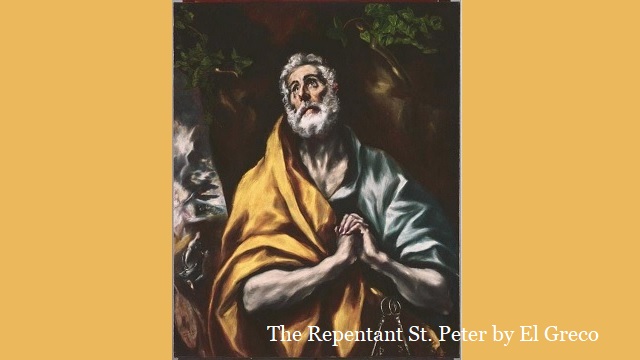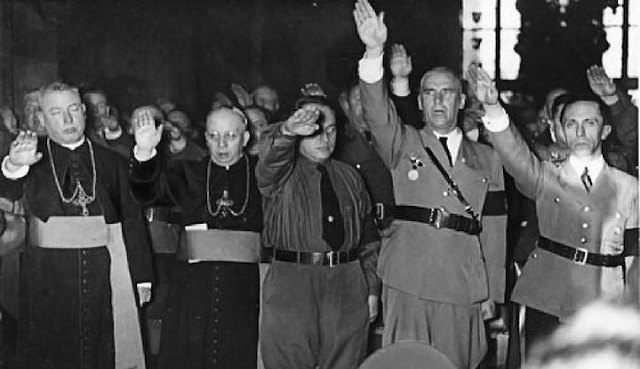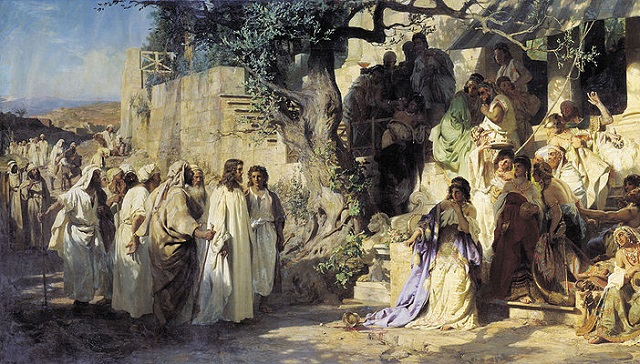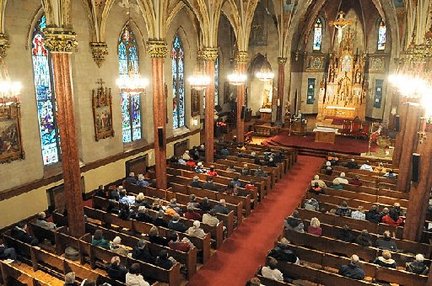Repentance for Sin and Sacramental Absolution

Thomas G. Weinandy, OFM, Cap.: We need evermore deeply to repent of our sins, confess them humbly, and resolve more ardently never to commit them again.
It’s been widely reported that Pope Francis told seminarians from Barcelona, Spain, in an unscripted talk, that they must not “be clerical, to forgive everything.” Such must be the case even “if we see that there is no intention to repent, we must forgive all.” In denying “absolution” to someone who is unrepentant, “we become a vehicle for an evil, unjust, and moralistic judgment.” Priests who withhold absolution to the unrepentant are “delinquents.”
At one point, Francis referred to such priests, whom he finds detestable, in a crude and obscene manner. (For an example of the reporting, click here.)
The scenario, as portrayed by Francis, of an unrepentant sinner going to Confession is extremely rare. It does, nonetheless, pose an important doctrinal issue.
The sacrament of Penance or Reconciliation is a sacrament of God’s mercy. Although baptism cleanses the faithful from all sin, it is readily evident that we continue to sin, and sometimes we may commit mortal sins, which separate us from God. To obtain God’s merciful forgiveness for such serious sins, we are obliged to confess our sins within the sacrament of Penance.
The Catechism of the Catholic Church states: “Christ instituted the sacrament of Penance for all sinful members of the Church: above all for those who, since Baptism, have fallen into grave sin, and have thus lost their baptismal grace.” (¶ 1446). God’s mercy is always present within the sacrament of Reconciliation.
That being said, there is, nonetheless, a prerequisite condition on the part of the sinner for obtaining God’s merciful pardon – the need for sorrowful repentance and the desire not to sin again. Quoting the Council of Trent, the Catechism declares: “Among the penitent’s acts contrition occupies first place. Contrition is ‘sorrow of the soul and detestation for the sin committed, together with the resolution not to sin again’” (¶1451). Moreover, The Code of Canon Law states that, for penitents to receive “the saving remedy of the sacrament of penance, they must be so disposed that, repudiating the sins they have committed and having the purpose of amending their lives, they turn back to God.” (Canon 987)
Pope Francis’s impromptu declaration that absolution should be given even to those who are unrepentant is absolutely contrary to the Church’s living apostolic tradition, one that is found in the Catechism, and has been defined by the Council of Trent and enshrined in Canon Law.
The question can, nonetheless, be asked: Why is repentance (and the intention not to sin again) necessary for receiving sacramental absolution by the ministry of the priest? Is there an intrinsic inter-relationship between repentance and absolution? Or is the need for repentance merely an arbitrary law instituted by the Church, and so not essential to receiving sacramental absolution?
Pope Francis, it would seem, affirms the latter.
If a person were not sorry for his/her sins, it would seem obvious that sacramental absolution could not be given. The desire for sacramental absolution implies and presupposes that penitents recognize that they have sinned and now wish that God, in his compassionate mercy, will forgive them.
God’s merciful forgiveness is ever-present within the sacrament of Reconciliation, and the priest is ever-willing to absolve sins, most of all, mortal sins. Yet, it is sacramentally impossible to obtain God’s loving and merciful forgiveness, if one is not repentant for the sins committed.
While Francis may want to be merciful by suggesting that unrepentant sin be absolved, he is, nonetheless, morally “delinquent,” since the person continues to remain guilty of the sins that he or she committed. Such is particularly the case, if one is in mortal sin. Thus, the pope’s exhortation is pastorally irresponsible and could be spiritually deadly, for unrepentant persons may think they were absolved when, in fact, they were not.
The Scriptures bear witness to the obligatory relationship between repentance and forgiveness. Mark’s Gospel tells us that after John had been arrested, Jesus went into Galilee and proclaimed: “The time is fulfilled, and the kingdom of God is at hand; repent, and believe in the gospel.” (Mk. 14-15) Repentance is requisite for entering into God’s kingdom, for it is a kingdom of God’s merciful forgiveness and the source of a holy life.
In Luke’s Gospel, Jesus narrates the parable of the Prodigal Son. The younger son asks for his share of his father’s inheritance. Having received it, he goes off into a far country where he lives a profligate sinful life. When he came to his senses, he realizes that he needs to repent and return to his father, “I will arise and go to my father, and I will say to him. ‘Father, I have sinned against heaven and before you.’” (Lk. 15:18)
Upon seeing his son at a distance, the merciful father rushes out to greet him, and lovingly, with rejoicing, takes him back into his household. Yes, the father was merciful, but the father could only manifest his mercy when his delinquent son returned to him in repentance. If he had not returned, the father would have never been able to enact his ever-compassionate mercy.
The same is true with regard to God our Father. Unless we return to him in repentance, he is incapable of enacting his merciful pardon by means of the sacrament of forgiveness. Pope Francis, by separating the human act of repentance from the divine act of forgiveness, has made God’s mercy null and void.
In light of all of the above, the lesson for all of us is that we need evermore deeply to repent of our sins, confess them humbly, and resolve more ardently never to commit them again. In so doing, the sacramental absolution of the priest will marvelously manifest to us the ever-present abundant mercy of God the Father, made visible in Jesus Christ his Son, and sealed in the love of the Holy Spirit.
You may also enjoy:
David W. Fagerberg’s A Good Death
Fr. Timothy V. Vaverek’s Without ‘Metanoia’ We Perish
AUTHOR
Fr. Thomas G. Weinandy, OFM, Cap.
Thomas G. Weinandy, OFM, a prolific writer and one of the most prominent living theologians, is a former member of the Vatican’s International Theological Commission. His newest book is the third volume of Jesus Becoming Jesus: A Theological Interpretation of the Gospel of John: The Book of Glory and the Passion and Resurrection Narratives



